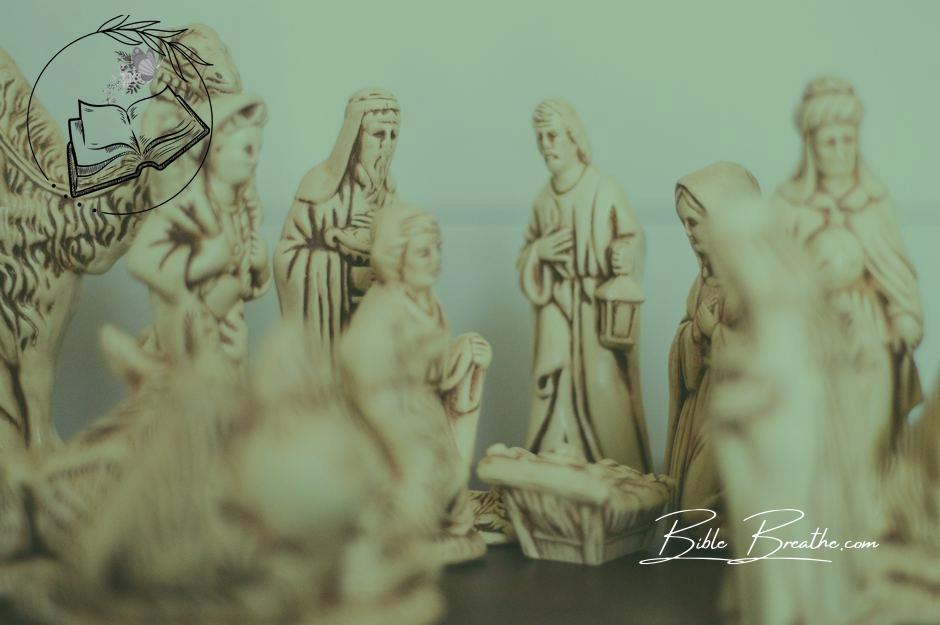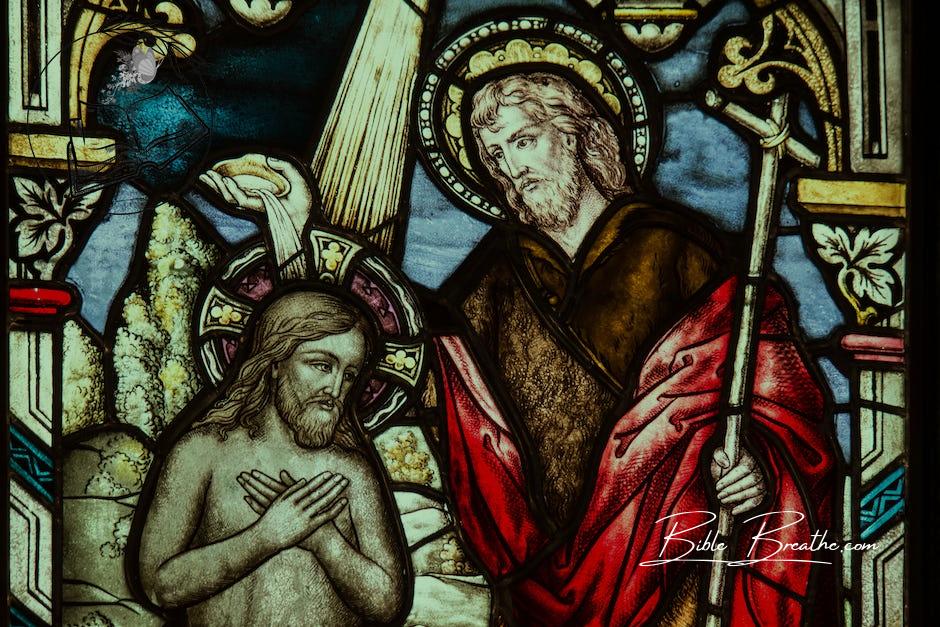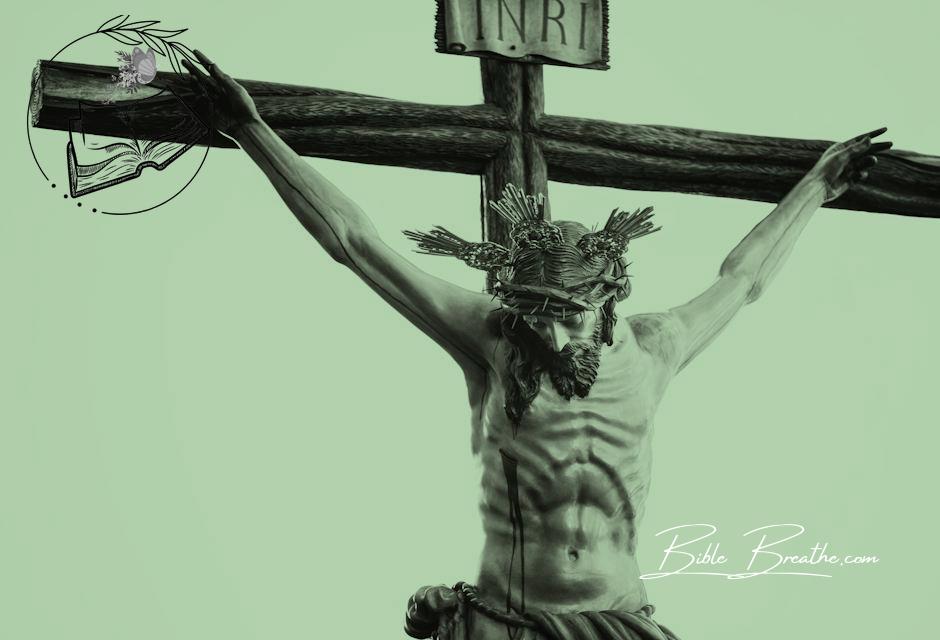Who’s God the Father in Catholicism, fam?
It’s like peeling back the layers of the most epic story ever.
Picture God not as some far-off entity but as your heavenly Dad.
In the Catholic playbook, this is the bedrock—Holy Trinity vibes, where God is both Dad, Jesus, and the Holy Spirit all at once.
Catholic teaching says God as Father is the ultimate Creator, the star of a grand show revealed through the legendary Jesus and that Holy Spirit power.
This show?
It’s got an Old Testament prequel with prophets and Israel, leading to the blockbuster New Testament sequel.
This concept is clutch.
It shapes how Catholics roll with their faith, their backstage pass to salvation, and their power moves in those faith rituals, like sacraments.
Knowing God as Father is your key to understanding the faith game, like unlocking the secrets of a sacred quest.
We’re diving deep into this, and it’s a wild ride of revelation, faith, and an Almighty God who’s got your back.
🚀🙌
Key Takeaways
- Profound Mystery of God: In Catholic theology, God the Father is seen as part of the Holy Trinity, which also includes God the Son (Jesus Christ) and God the Holy Spirit. This triune nature of God is a profound mystery, and His essence is considered beyond human comprehension. Catholics emphasize the need for humility and reverence when approaching the divine.
- The Holy Trinity: God the Father is one of the three persons of the Holy Trinity. Catholics believe that these three persons are distinct yet co-equal and co-eternal. God the Father is often seen as the Creator, the source of all existence, and the originator of the divine plan.
- Loving and Powerful Nature of God: Catholic teachings emphasize that God the Father is loving, merciful, and all-powerful. He is portrayed as a caring and compassionate Father who desires a personal relationship with His children. His love is seen in sending Jesus Christ for the redemption of humanity.
- Prayer and Worship: Catholics engage in prayer and worship to honor God the Father as part of the Holy Trinity. The Lord’s Prayer, for example, addresses God as “Our Father” and is a central prayer in Catholicism. The Mass, a central act of worship, is celebrated in the name of the Father, the Son, and the Holy Spirit.
In summary, God the Father in Catholicism is viewed as part of the Holy Trinity, a loving and powerful Creator, and a central figure in the Christian faith.
His nature is a profound mystery, and Catholics approach Him with reverence and humility, seeking a personal relationship through prayer and worship.
Unveiling the Divine Mystery: God the Father in Catholicism
Photo modified by BibleBreathe.com. Original photo by Jessica Lewis 🦋 thepaintedsquare on Pexels
Ever wondered about the enigmatic nature of God the Father according to the Catholic faith?
Well, get set for a journey into the depths of divine understanding that’s as profound as staring into the vastness of the night sky.
Beyond the Horizon: Understanding God’s Unfathomable Essence
When we delve into the concept of God the Father in Catholic theology, we’re plunging into an ocean of thought that’s as immense and mysterious as the cosmos.
It’s akin to trying to comprehend the enormity of the universe with just a pair of binoculars.
“No man hath seen God at any time.” – John 1:18 (KJV)
These words from the Gospel of John remind us that God’s essence is beyond the grasp of human perception.
It’s like attempting to visualize the wind—you can’t see it, but you can feel its presence and observe its effects.
Likewise, we can’t see God, but we can experience His influence in our lives.
Deciphering the Unfathomable
In our everyday lives, we often perceive mysteries as puzzles to be deciphered, much like a detective solving a case.
But in the context of God, it’s more like standing at the edge of an endless ocean—profound, awe-inspiring, and impossible to fully comprehend.
The mystery of God isn’t a conundrum waiting to be unraveled; it’s an invitation to explore the depths of faith.
It’s like a heartfelt letter from God, where each word unveils a new aspect of His divine nature.
Beyond the Grasp of Human Intellect
Imagine explaining the complexities of modern technology to someone from centuries ago—it would be mind-boggling!
Similarly, attempting to completely grasp God’s divine nature is beyond the scope of our human minds.
It’s like trying to contain the ocean within a small vessel.
As Catholics, we embrace this mystery, understanding that while we may never fully comprehend God, we can still nurture a deep and meaningful relationship with Him through faith.
It’s akin to standing in awe of a captivating sunset—you may not comprehend every detail of it, but you’re moved by its beauty.
So, as you contemplate God the Father in the Catholic faith, remember that His mystery is not a puzzle to be solved but a wondrous journey to embark upon.
It’s an exploration of the limitless depths of divine love, like sailing across an endless sea with the promise of discovery at every horizon.
Grasping the Heart of God the Father in Catholic Belief
Photo modified by BibleBreathe.com. Original photo by Brett Jordan on Pexels
In the intricate quilt of Catholic beliefs, one figure stands out, draped in divine significance – God the Father.
Let’s take a deep dive into understanding the revelation of God as seen through the lens of Catholicism.
God’s Fatherly Love for Israel: A Divine Love Story
In the epic tale of the Bible, we witness God’s profound bond with Israel, a connection often likened to that of a caring parent.
Just like a parent nurtures their offspring, God looked after and guided the Israelites through their highs and lows.
For I know the plans I have for you, declares the Lord, plans for welfare and not for evil, to give you a future and a hope.” – Jeremiah 29:11 (KJV)
This verse beautifully epitomizes God’s affectionate intentions for His people, a recurring theme in Catholic theology.
God’s Singular and Incomparable Image in the Ancient Scriptures
In the Old Testament, a resounding proclamation of God’s oneness and uniqueness echoes through.
This belief in one God, known as the Shema, finds eloquent expression in the book of Deuteronomy:
Hear, O Israel: The Lord our God is one Lord.” – Deuteronomy 6:4 (KJV)
Catholic teachings strongly uphold this profound truth, highlighting the Father as the initial person of the Holy Trinity, a divine trio encompassing the Son, Jesus Christ, and the Holy Spirit.
The Profoundness of God’s Love: A Love Deeper than Oceans
At the core of Catholic faith lies an unshakable belief in God’s limitless love.
This love surpasses human understanding, akin to attempting to measure the depths of the ocean with a mere teaspoon.
For God so loved the world, that he gave his only begotten Son, that whosoever believeth in him should not perish, but have everlasting life.” – John 3:16 (KJV)
This renowned verse from the New Testament underscores the immense sacrifice of God’s love through Jesus Christ, shedding light on the profound enigma of God’s divine essence.
To sum it up, within Catholicism, God the Father isn’t a distant notion but a loving and nurturing deity with an extensive history of engagement with humanity.
His unity and boundless love stand as robust pillars, fortifying the faith of countless believers across the globe, firmly establishing Him as a pivotal figure in the fabric of Catholic belief.
Grasping the Heart of Catholic Faith: God the Father Almighty
Photo modified by BibleBreathe.com. Original photo by Pixabay on Pexels
When we speak the words “God the Father Almighty” in the Catholic creed, we’re not merely uttering a phrase; we’re diving into the very essence of our faith.
Let’s unravel the deep meaning and profound significance that these words hold.
The Father Almighty: A Profound Expression of Faith
Referring to God as “Father Almighty” is recognizing His universal power and authority over all creation.
It’s like acknowledging a benevolent king whose rule extends to every corner of the kingdom.
In this case, God’s kingdom encompasses the entire universe.
Our Father who art in heaven, hallowed be thy name.” – Matthew 6:9 (KJV)
This opening line of the Lord’s Prayer reminds us of God’s fatherly role in our lives, guiding us with wisdom and love.
It’s akin to a caring parent watching over their children, providing guidance and care.
God’s Universal Power and Tender Love
God’s omnipotence is like the sun, radiating its light and warmth to every corner of the world.
His power knows no bounds, and yet, His love is as gentle as a mother’s embrace.
It’s a paradox that defines our understanding of God.
“For God so loved the world, that he gave his only begotten Son…” – John 3:16 (KJV)
This well-known verse from the Bible underscores the depth of God’s love for humanity.
He is not a distant deity but a loving Father who sent His Son, Jesus Christ, to save us.
It’s like a parent sacrificing everything for the well-being of their child.
Beyond Human Categories: God’s Transcendence
In the Catholic faith, we believe that God surpasses human categories and limitations.
He is neither male nor female, yet we refer to Him as Father, acknowledging His role as the source of all creation.
“I am Alpha and Omega, the beginning and the ending, saith the Lord.” – Revelation 1:8 (KJV)
Just as the alphabet encompasses all words, God transcends all understanding.
He is the origin and destination of our journey of faith, like the horizon that stretches infinitely before us.
So, when we declare our belief in “God the Father Almighty” in the Catholic creed, we are affirming our faith in a loving, all-powerful God who goes beyond human understanding.
It’s like embarking on an endless voyage of divine love, knowing that our Father guides us with unwavering care and authority.
Unveiling God as Father: Jesus’ Impact in Catholic Belief
Photo modified by BibleBreathe.com. Original photo by Alem Sánchez on Pexels
When it comes to understanding God the Father within the realms of Catholicism, we’ve got to shine a light on the game-changing role of Jesus Christ in reshaping this divine relationship.
Let’s take a closer look at how Jesus revealed God as Father in a way that transformed hearts and minds.
A Fresh Perspective: Jesus Redefining God as Father
Jesus didn’t just toss around the term “Father” casually.
He revolutionized how people perceived God as Father.
He didn’t paint God as some distant Creator; he presented a more intimate and personal dimension.
He encouraged his followers to address God as “Abba,” a term akin to “Daddy” in today’s language.
This shift allowed people to see God not as a remote deity, but as a loving and approachable Father.
“And he said, Abba, Father, all things are possible unto thee; take away this cup from me: nevertheless, not what I will, but what thou wilt.” – Mark 14:36 (KJV)
In this heartfelt prayer of Jesus in the Garden of Gethsemane, we get a glimpse of the profound intimacy of addressing God as “Abba.
The Divine Fusion: Jesus and the Father
At the heart of Catholic teachings lies the conviction of the divine nature shared by both Jesus and God the Father.
Jesus didn’t just reveal God as Father; he himself was the Son of God, an integral part of the Holy Trinity.
This divine bond, uniting the Father, the Son, and the Holy Spirit, is a deep mystery that holds the essence of Catholic faith.
“I and my Father are one.” – John 10:30 (KJV)
This bold statement by Jesus underscores the unity and divinity that exists between him and the Father.
Delving Deeper: Jesus, the Second Person of the Trinity
Catholic theology takes us further into the profound concept of the Holy Trinity, positioning Jesus as the Second Person in this divine trio.
This teaching affirms that God manifests as three distinct persons in one divine essence: the Father, the Son (Jesus Christ), and the Holy Spirit.
This intricate relationship forms a fundamental belief in Catholic faith.
Go ye therefore, and teach all nations, baptizing them in the name of the Father, and of the Son, and of the Holy Ghost.” – Matthew 28:19 (KJV)
These words of Jesus stress the significance of the Father, the Son, and the Holy Spirit within the Christian faith, highlighting the intricate interplay between them.
In a nutshell, Jesus’ revelation of God as Father in Catholicism isn’t a mere tweak in terminology; it’s a profound unveiling of a personal and intimate relationship.
This revelation, coupled with the belief in the divine nature shared by both Jesus and the Father, lays the bedrock of Catholic doctrine and illuminates the mystery of the Holy Trinity.
The Holy Spirit and the Marvel of the Holy Trinity in Catholic Belief
Photo modified by BibleBreathe.com. Original photo by Ron Lach on Pexels
In the rich tapestry of Catholic faith, the Holy Spirit and the Holy Trinity stand out as threads of profound significance.
Let’s unwrap the beauty of these divine mysteries.
The Promise of the Holy Spirit: A Priceless Gift from Jesus
Imagine a friend giving you a priceless gift.
That’s what happened when Jesus promised His disciples the Holy Spirit.
It’s like receiving a compass in the vast wilderness of life—a guide, a source of strength, and a companion on our spiritual journey.
“And I will pray the Father, and he shall give you another Comforter, that he may abide with you forever.” – John 14:16 (KJV)
The Holy Spirit is often referred to as the Comforter, a divine presence that offers solace and guidance.
It’s akin to a friend who is always there to offer a comforting hand in times of need.
The Holy Spirit: Third Person of the Trinity
Now, let’s talk about the Holy Trinity—a concept central to the Christian faith.
It’s like a three-part harmony in a beautiful piece of music.
The Father, the Son (Jesus Christ), and the Holy Spirit are distinct yet inseparable, much like the notes that come together to create a melodious tune.
The Holy Spirit, often depicted as a dove, is the third person of this divine trio.
Just as a dove brings peace, the Holy Spirit brings the peace and presence of God into our lives.
The Marvel of the Holy Trinity
The Holy Trinity is like a multifaceted gem, each facet reflecting a different aspect of God’s nature.
It’s a mystery that invites us to contemplate the depths of divine love and unity.
Go ye therefore, and teach all nations, baptizing them in the name of the Father, and of the Son, and of the Holy Ghost.” – Matthew 28:19 (KJV)
This verse highlights the significance of the Holy Trinity in Christian baptism.
It’s like immersing ourselves in the ocean of God’s love, where we are welcomed into the family of Father, Son, and Holy Spirit.
Three Truths of Faith
In the Catholic faith, we embrace three profound truths related to the Trinity:
- The Father is God.
- The Son is God.
- The Holy Spirit is God.
These truths remind us that God’s nature is both singular and triune, a concept that challenges our human understanding but deepens our faith.
So, when we delve into the Holy Spirit and the Holy Trinity in Catholic belief, we are embracing divine mysteries that enrich our faith journey.
It’s like embarking on a grand adventure, discovering the profound depths of God’s love and presence, and finding comfort in the triune nature of our Creator.
Frequently Asked Questions (FAQs) About Who Is God The Father Catholic
Why is God referred to as the Father in Catholicism?
In Catholicism, God is referred to as the Father because it reflects the relationship between God and believers.
This concept is rooted in the teachings of Jesus, particularly in the Lord’s Prayer, where He addresses God as ‘Our Father.’ It emphasizes the intimate, loving, and protective nature of God’s relationship with humanity.
How is the concept of the Holy Trinity central to the Christian faith?
The Holy Trinity is central to Christianity, representing God as Father, Son (Jesus), and Holy Spirit.
It reflects God’s nature and is essential for understanding the complexity of God’s relationship with humanity and the plan of salvation.
What is the significance of the Holy Spirit in the Trinity?
The Holy Spirit is an integral part of the Trinity, representing God’s presence within believers.
It signifies God’s active involvement in the world, guiding, empowering, and comforting individuals.
The Holy Spirit unites believers with God, working in conjunction with the Father and the Son, emphasizing a holistic understanding of God’s nature and His relationship with humanity.
{
“@context”: “https://schema.org”,
“@type”: “FAQPage”,
“mainEntity”: [
{
“@type”: “Question”,
“name”: “Why is God referred to as the Father in Catholicism?”,
“acceptedAnswer”: {
“@type”: “Answer”,
“text”: “In Catholicism, God is referred to as the Father because it reflects the relationship between God and believers. This concept is rooted in the teachings of Jesus, particularly in the Lord’s Prayer, where He addresses God as ‘Our Father.’ It emphasizes the intimate, loving, and protective nature of God’s relationship with humanity.”
}
},
{
“@type”: “Question”,
“name”: “How is the concept of the Holy Trinity central to the Christian faith?”,
“acceptedAnswer”: {
“@type”: “Answer”,
“text”: “The Holy Trinity is central to Christianity, representing God as Father, Son (Jesus), and Holy Spirit. It reflects God’s nature and is essential for understanding the complexity of God’s relationship with humanity and the plan of salvation.”
}
},
{
“@type”: “Question”,
“name”: “What is the significance of the Holy Spirit in the Trinity?”,
“acceptedAnswer”: {
“@type”: “Answer”,
“text”: “The Holy Spirit is an integral part of the Trinity, representing God’s presence within believers. It signifies God’s active involvement in the world, guiding, empowering, and comforting individuals. The Holy Spirit unites believers with God, working in conjunction with the Father and the Son, emphasizing a holistic understanding of God’s nature and His relationship with humanity.”
}
}
]
}






